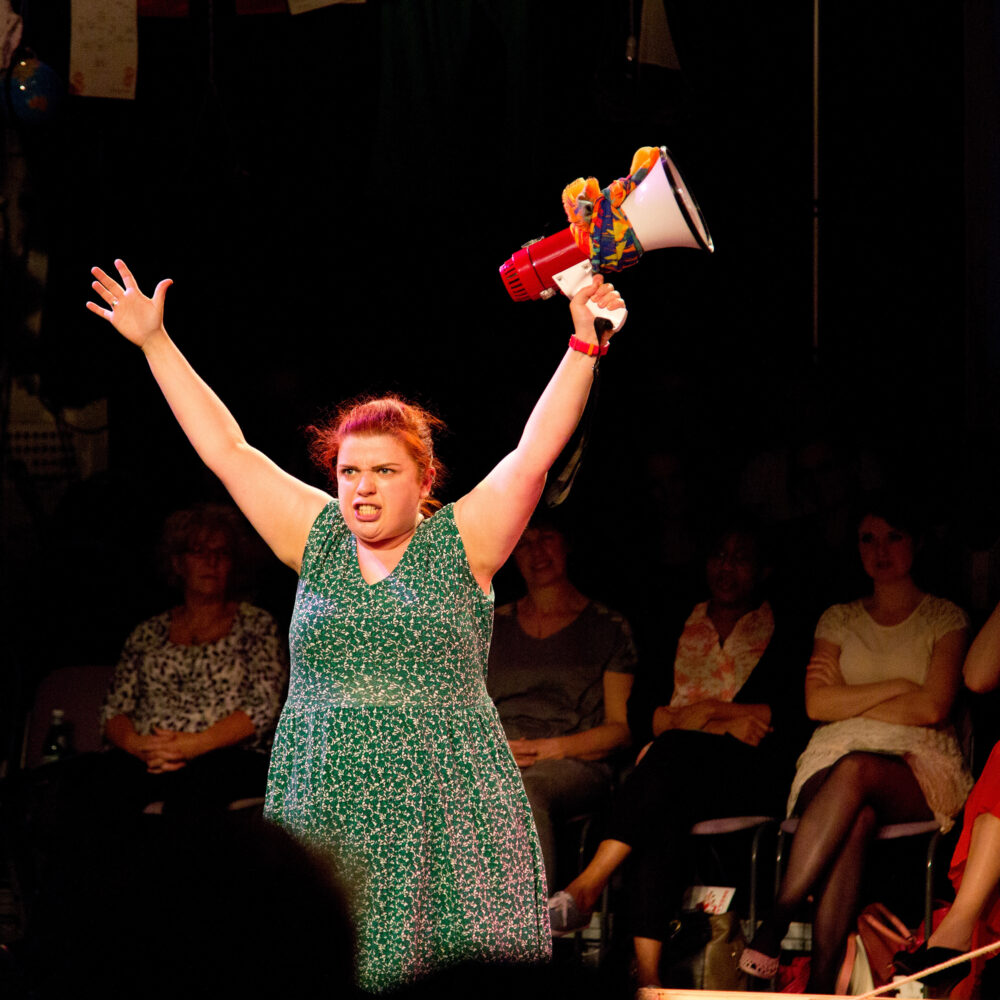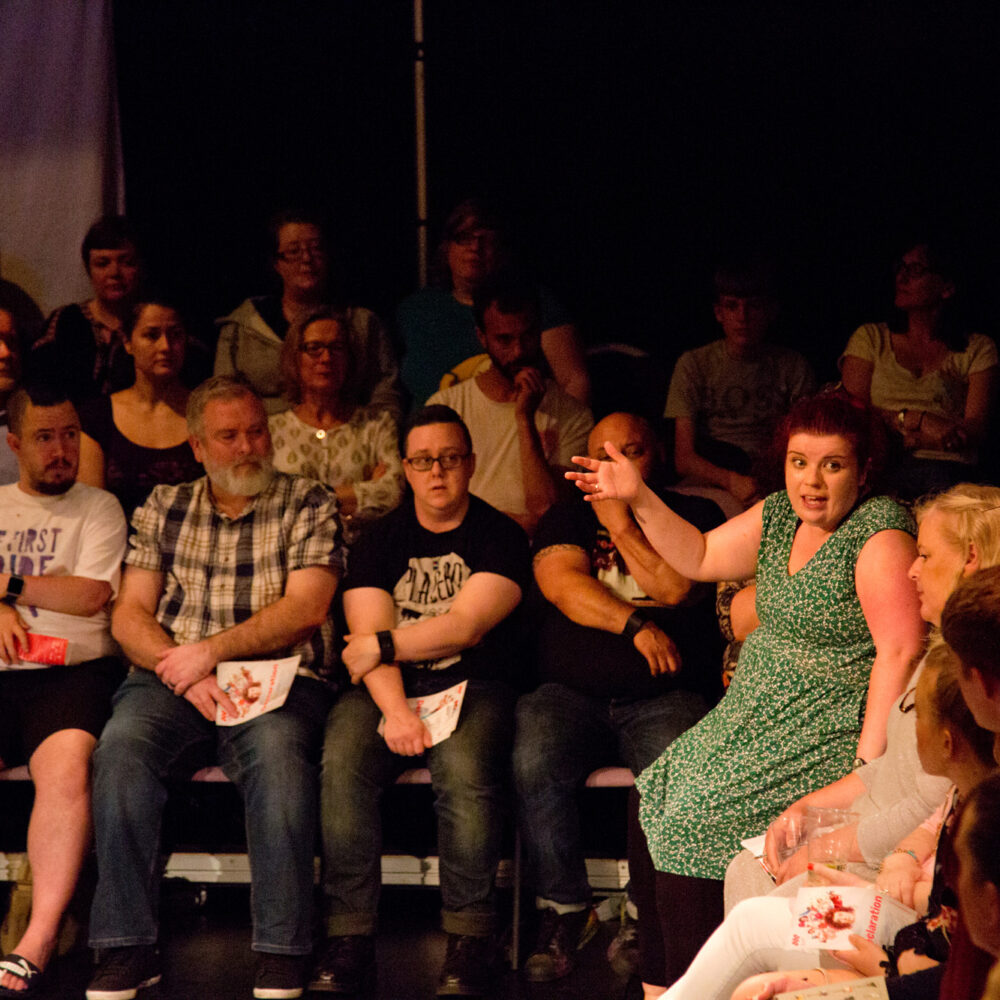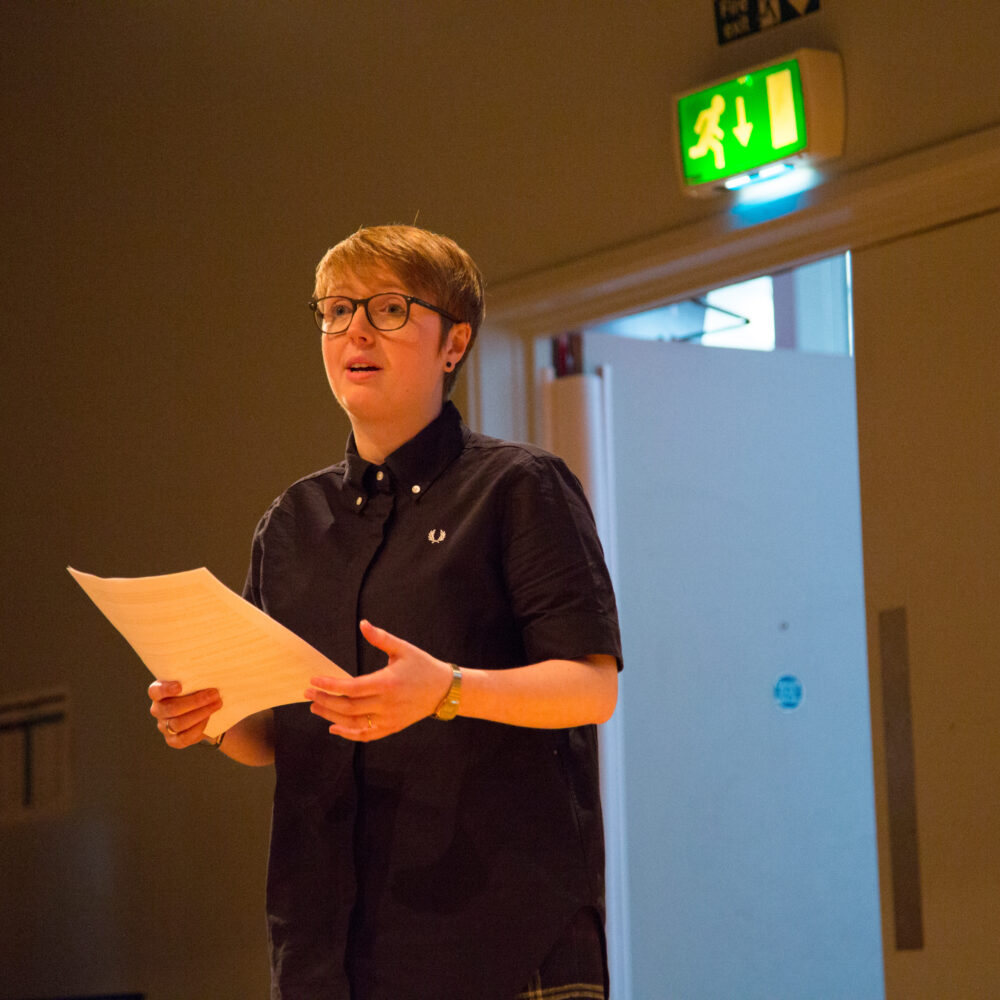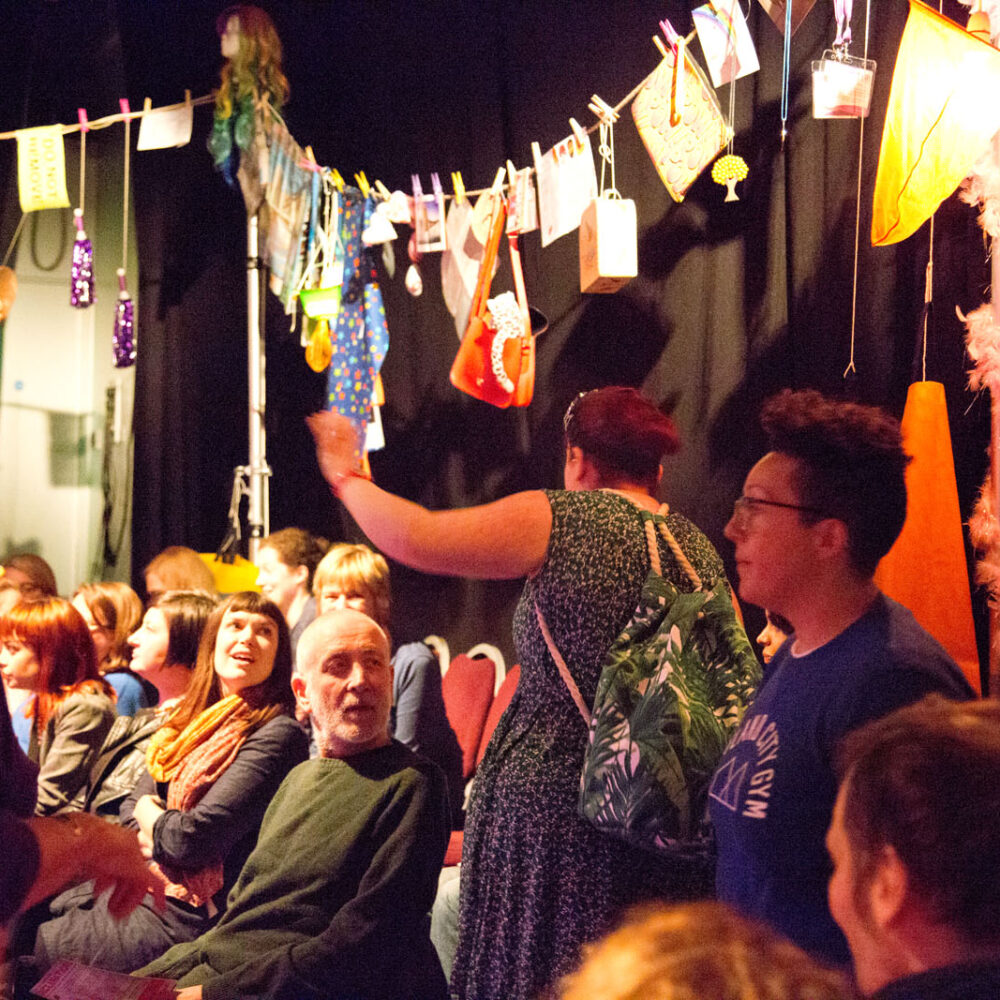



Attention Deficit Hyperactive Disorder (ADHD) is commonly associated with children and is a group of behavioural symptoms including inattentiveness, hyperactivity and impulsiveness. For adults with ADHD getting a diagnosis can be a difficult process.
On Mental Health Awareness week, Rachel Wrigley interviews Rachel Moorhouse, co-director of Art with Heart, about her upcoming show Declaration which has been ‘Developed With’ The Lowry. Declaration is an autobiographical exploration of being diagnosed with ADHD which premieres in The Studio on Thu 23 & Fri 24 June.
So start us off lightly and introduce yourselves, who and what is Art with Heart?
Art with Heart are inquisitive arts adventurers. Based between Stretford and Salford we are made up of 1/3 Sarah and 2/3 Rachel’s. For a small company we like to talk about big stuff.
We are performance makers, workshop warriors and education explorers whose projects pop up in theatres, museums, community centres, schools; and occasionally on trams!
We love to natter about things that matter and make art which provokes chatter amongst audiences. Considering we don’t take ourselves too seriously, we are about equality, diversity, mental health and social justice.
Your new show Declaration has been ‘Developed With’ The Lowry, why have you chosen to make a show on ADHD?
Our decision to explore ADHD on stage is two-fold, one part personal and the other political.
A few years ago our 1/3 Sarah was faced with a possible diagnosis of ADHD (Attention Deficit Hyperactive Disorder). Sarah said she had always felt different; but as a child of the early 80s, she grew up before ADHD was acknowledged as a medical disorder, so never received diagnosis.
After a lifetime of trying to understand her difference, Sarah was finally offered a potential explanation. However, diagnosis for adult ADHD isn’t straight forward and you often need to be living in the extremities of the condition to receive support. We wanted to explore the complexities and challenges that people are faced with when seeking or receiving a medical diagnosis; the relief and the grief that comes with it.
Politically, we wanted to challenge some of the stereotypes and stigmas around ADHD. We wanted to discuss the gender imbalance in diagnosis; how many girls go undiagnosed as they are able to ‘fake it’ and find ways to ‘fit in’. We wanted to show people that ADHD isn’t just the mainstream media image of the “naughty child” tearing round a supermarket; that it can be a 31 year old woman trying desperately to get it together and get to work on time.

Gosh, I hadn’t realized just how much ADHD in adults could go under the radar. What can audiences expect from the performance of Declaration then?
For a piece about ADHD, mental health and diagnosis, Declaration is surprisingly upbeat. Audiences can expect an honest and hopeful personal tale told through storytelling, comedy and movement.
There will be a lot of humour, dancing and some great tunes to boot. They’ll be chances to get involved if you feel comfortable, and hopefully you will because we always try our best to create a warm and safe space to share stories with our audiences.
I can’t wait to get involved. So how important is it for us to raise awareness of Mental Health, especially ADHD?
Mental health affects 1 in 4 of us, and sometimes people struggle in silence. I’ve had my own personal battles with mental health and it took me a long time to speak out and ask for help, but when I did my life re-started. I stopped living in denial and started living within reality, began looking after myself and was able to move forward slowly but surely.
With ADHD, people often think about it in children and not adults. Awareness around adults with ADHD is fairly low and there are so many misconceptions around ADHD.


As we have seen with the recent #ADHDebate, which was featured in major newspapers and on television, people don’t treat ADHD with the same level of sensitivity and respect as that of conditions such as Autism. We want to help fight against that and help raise awareness of the barriers people with ADHD face, and what we can do to support them.
There are some brilliant websites and services including AADD UK, MADDchester support group, and of course Time To Change who are fighting mental health stigma and MIND. Sometimes, support is as easy as asking someone you care about how they are. We would encourage everyone to check in with each other. Sometimes that can really help you.
Both you and your colleague Sarah Emmott from Art with Heart are from Greater Manchester, how important is it that you can present your work at a local theatre.
As proud and honorary Mancunians it is incredibly important that we present work locally. We don’t just create work for local communities though, we like to create it with them too. Throughout the year we run projects and create artistic works (film, theatre, installation) with local communities.
We are currently based in a school in Salford, where we mentor a number of students and collaborate on creative projects with them. As a Company we have a base in Stretford where we are starting a community stakeholders group to look at providing creative opportunities in areas of need.

There’s a lot of collaboration in the shows and community work that you do then. Who else have you worked with in the lead up to Declaration?
Whilst 1/3 Rachel beavers away with spreadsheets, numbers and grown up stuff, 1/3 Sarah and the other 1/3 Rachel beaver away in the rehearsal room. We couldn’t make work without our wider team of supporting superstars though.
For Declaration we are once again working with Deb Pugh, a fabulous movement director and a core member of The Lowry Associate Artist’s Theatre Ad Infinitum (you’ll have seen her face on the big banners on the drive up to The Lowry).
We’re also teaming up with tech champions Greg Akehurst and Richard Walker who are in the process of building our set and creating lighting designs. And we are excited about a collaboration with People Staring to create some of our video content.
We’re incredibly fortunate to be part of a supportive creative community here in Manchester and many of our artistic peers have given up their time to watch some of our half formed ideas, which helps to strengthen and grow the work. We’ve teamed up with mental health support groups 42nd Street in Manchester and Creative Recovery in Barnsley to develop a supporting workshop for Declaration.